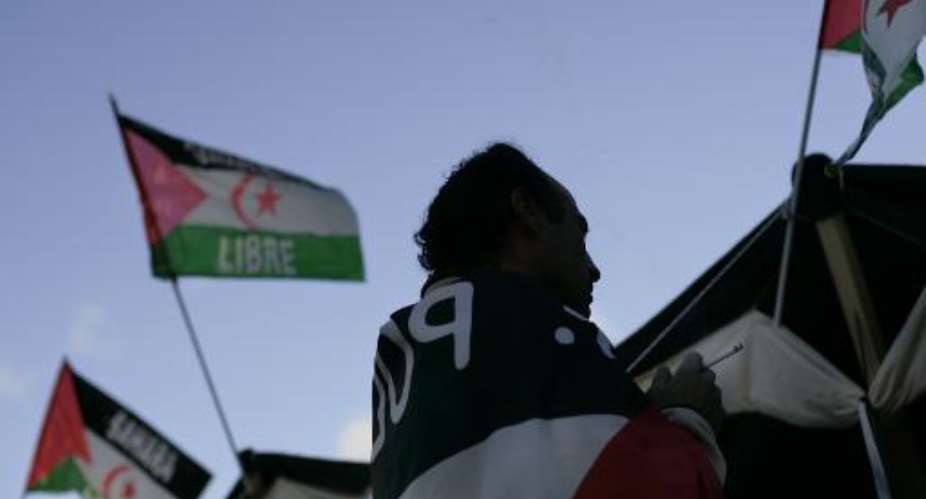Rabat (AFP) - Seven Sahrawi men who were severely beaten at a Moroccan jail in Western Sahara have gone on hunger strike to protest their ill treatment, Amnesty International said Friday.
The men had been handcuffed and severely beaten Wednesday in front of other prisoners in the courtyard of the prison in Laayoune, as well as verbally abused, the London-based rights group quoted eyewitnesses as saying.
The seven, arrested in early 2014 during a demonstration in Laayoune, sustained significant bruising and injuries, with one of them suffering a broken arm and the other limping due to a leg injury.
Laayoune's police chief, contacted by AFP, dismissed what he termed the "absurd allegations."
"The people concerned refused to fall in line with the prison rules. They used pieces of glass to attack four guards, who were injured," said Yahdih Bouchaab, adding that he had video evidence of the incident.
The prison's director, Abdelilah Zenfouni, denied they were on hunger strike and said the men were eating normally.
Amnesty, meanwhile, called on Moroccan authorities to ensure the men were not tortured, given the medical care they need, protected from reprisals and allowed to see their families.
It also demanded an investigation into reported torture and other ill-treatment, with those found responsible being brought to justice.
Morocco occupied much of Western Sahara in 1975 after former colonial power Spain withdrew, and has offered the Sahrawis autonomy under its rule.
That is rejected by the Polisario Front independence movement, which controls about a fifth of the territory.





 2024 elections: Resign if you can't be faithful to party - Sagnarigu NDC PC desc...
2024 elections: Resign if you can't be faithful to party - Sagnarigu NDC PC desc...
 Five arrested, remanded over alleged murder of two police officers at Transacco
Five arrested, remanded over alleged murder of two police officers at Transacco
 Tax exemptions better than incentives for churches – Tax Analyst tell Bawumia
Tax exemptions better than incentives for churches – Tax Analyst tell Bawumia
 Transport Minister sues Law Platform Editor for defamation
Transport Minister sues Law Platform Editor for defamation
 Voter registration: Police arrest NPP Treasurer for Mpohor for registering minor
Voter registration: Police arrest NPP Treasurer for Mpohor for registering minor
 "This nonsense must stop" — Lawrence Tetteh vows to march to Jubilee House over ...
"This nonsense must stop" — Lawrence Tetteh vows to march to Jubilee House over ...
 2024 elections: “If indeed you stand for peaceful elections the time is now for ...
2024 elections: “If indeed you stand for peaceful elections the time is now for ...
 I have the attributes to be president of this country — Bernard Monarh
I have the attributes to be president of this country — Bernard Monarh
 Cecilia Dapaah saga: ‘Turf war’ between AG, EOCO, OSP indicates they’re not ‘cor...
Cecilia Dapaah saga: ‘Turf war’ between AG, EOCO, OSP indicates they’re not ‘cor...
 Ghana will become the first African country to embrace blockchain-powered gover...
Ghana will become the first African country to embrace blockchain-powered gover...
